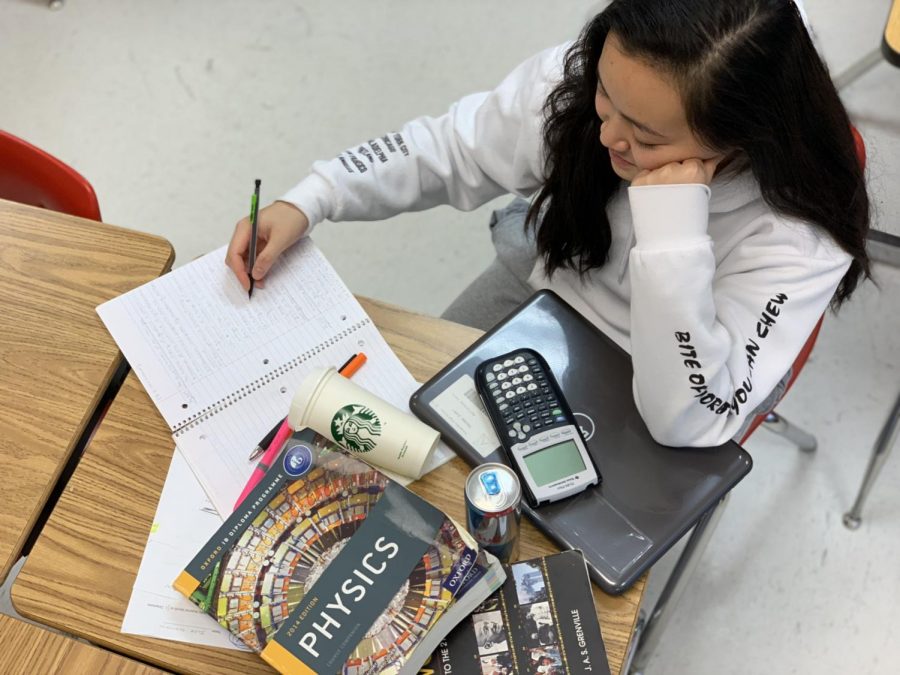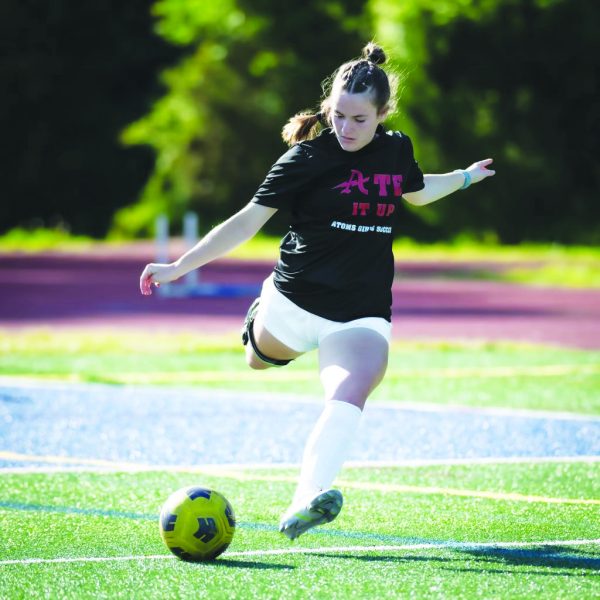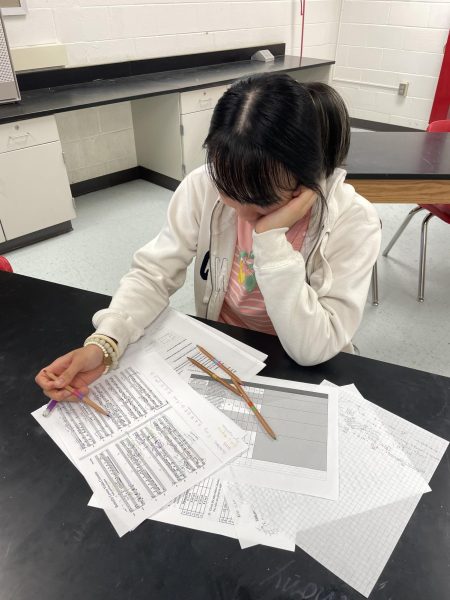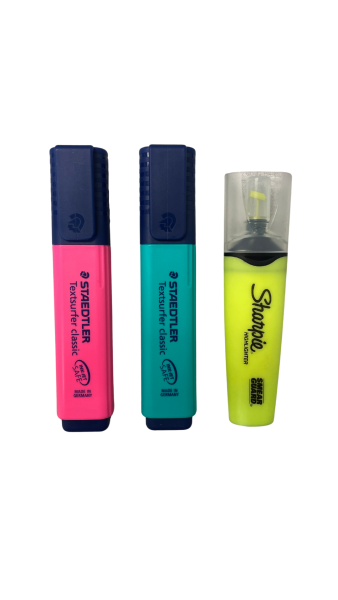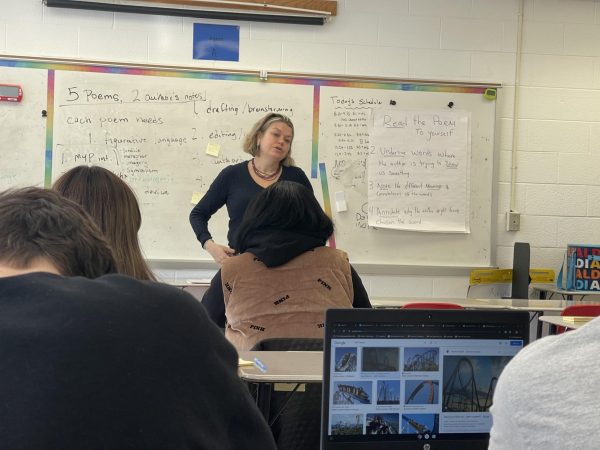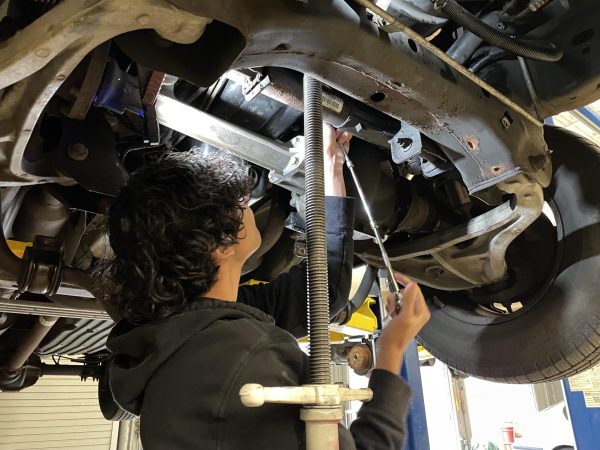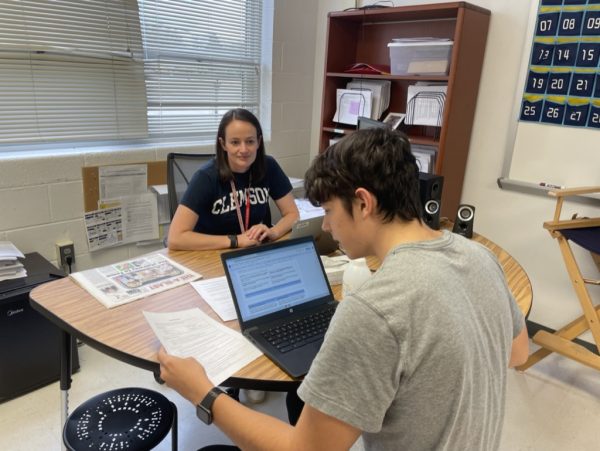Beyond Stressed
Are students being overworked?
Senior Jasmine Phan works for hours on an overload of assignments every night after getting home from extracurricular activities and clubs at school.
As senior Jasmine Phan roams the halls every school day going from class to class, she can’t help but think about her loaded agenda of tasks to complete. An IB Diploma candidate, Phan has adapted to having a schedule comprised of some of the most difficult classes available.
The typical school day yields Phan about four to five hours worth of assignments from homework to projects to studying for tests and quizzes. However, being such an involved student, there is hardly enough time in one day for her to fulfill all of her academic responsibilities.
“The most stressful part of school is trying to stay on top of my school work and to do well in my classes while also trying to maintain my other responsibilities,” Phan said. “The process this year of being an IB Diploma candidate and applying to colleges at the same time hasn’t helped in reducing stress either.”
Being an IB Diploma candidate means that students take the most challenging courses available from junior to senior year. In recent years, AHS has seen its highest number of IB Diploma candidates with 47 students graduating last year and 49 seniors and 50 juniors being candidates this year.
“I think that each IB class students take gets them more prepared for college,” IB Diploma Coordinator Linda Bradshaw said. “I try to support any student no matter how many IB courses they are taking.”
Students view being a diploma candidate as coming with its shares of positives and negatives.
“The best part of being an IB Diploma candidate is being surrounded by other students that are as academically motivated as me,” Phan said. “However, the worst part is definitely the anxiety and pressure that builds up with IAs, IB Exams and essays.”
Not only do diploma candidates have the most rigorous coursework, but many are involved in extracurricular activities such as sports, clubs and honor societies that play a role in adding to students’ agenda of things to do.
Phan is no exception to this as she is in the Philharmonic Orchestra, a varsity tennis player, the Co-President of the Just World interact club, the secretary of the National English Honor Society and a member of a plethora of other clubs and honor societies as well as being a volunteer at local hospitals.
With this being said, it begs the question that with many responsibilities on their plate, how has stress increased for these kinds of busy students?
An NYU study revealed major insight to the daily occurrences of students across the nation and how their stress levels and coping mechanisms may be driving them towards a direction of long term chronic stress and mental health issues.
The study shows that many subgroups of youth experience high levels of chronic stress to the extent that it impedes their ability to succeed academically. Not only this, but the chronic stress continues into the college years of these adolescents contributing to issues regarding mental health functioning and academic disengagement.
The study mentions school work, college applications, extracurricular activities and parental expectations as all contributing to teenagers’ stress. The pressure for students to want to be accepted to top tier colleges and institutions is also noted by the study as a stressor for students.
“Having pressure from those around me to be accepted to a top school or university has only added to the pressure and strain on me this school year,” senior IB Diploma candidate Zuhair Rahman said. “There is just so much going on and I always feel like there is not enough time in the day to complete my work.”
The study continues by noting that a significant percentage of students surveyed have turned to substance use when under increased pressure. 38% of respondents mention alcohol use as a means of stress relief and 34% noted use of illegal substances such as marijuana in order to relieve their stress levels.
These unhealthy means of stress reduction can rather easily harm students in both the short and long term as the body can easily become reliant on these substances and access to them on a daily basis.
Often times as a school day progresses, students can be seen as sluggish and tired. This lack of sleep or sleep deprivation of high school students is largely due to academic and school work keeping students up very late into the night.
“I usually end up not getting home until pretty late in the day throughout a regular school week,” Rahman said. “I either end up staying awake until 1 or 2 a.m. working on my assignments or I decide to go to bed at 12 a.m. and just wake up earlier the next morning to complete my work.”
Being drowsy and fatigued throughout a school day is by no means a positive plan for student success. Moreover, students have attempted to counteract this in an unhealthy manner.
“When I don’t get enough sleep or I know that I’m going to be staying up late, I make sure to have something with caffeine in it like a coke,” Rahman said. “In the morning I’m usually really sleepy so I either drink coffee or have an energy drink like Red Bull or Monster to wake myself up a bit.”
The Centers for Disease Control and Prevention (CDC) found that data from Youth Risk Behavior Surveys revealed that 73% of high school students across 30 states are not receiving enough sleep.
The CDC noted as part of their report that adolescents who did not get the recommended amount of sleep for their age group would be at increased risk of chronic conditions such as diabetes, obesity and poor mental health.
With this data being extremely problematic and concerning for high school students across the country, there are a number of things from organization to planning that can help in stress reduction.
“I try to prioritize what I believe are the most important things for me to do first by making lists because it makes me feel more organized,” Phan said.
Despite different things students can do to be more organized, the greater issue is yet to be resolved. All signs point to students being overworked by the very way in which the school system has been set up.

Senior Jude Nanaw is the current Co-Editor in Chief of The A-Blast. He has been on staff for four years where in previous years he has held the positions...



